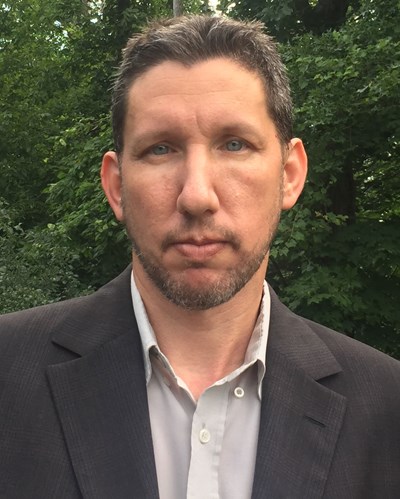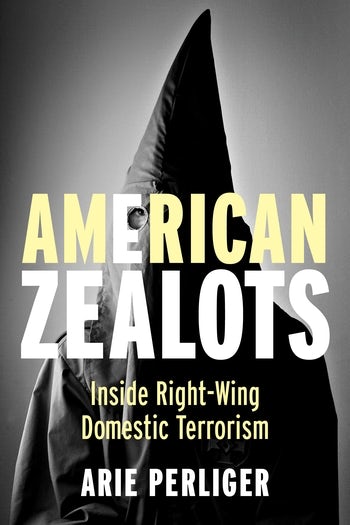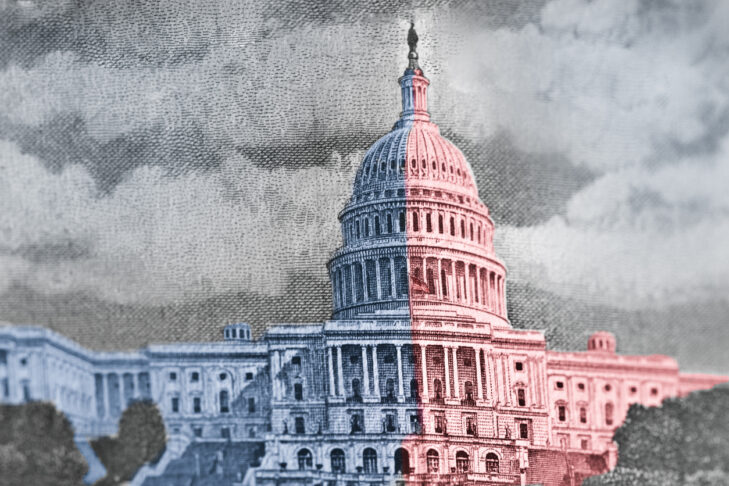Almost a decade ago, scholar Arie Perliger was so concerned about far-right violence that he began documenting it on a database at the U.S. Military Academy at West Point, where he was a professor. It has grown to become the nation’s largest such database, covering close to 6,000 events from 1990 to 2017. Now based at the University of Massachusetts Lowell, Israeli native Perliger sees the U.S. Capitol riots last Wednesday as very much a part of the violence he’s been monitoring.
“In terms of what actually happened, I don’t think anyone versed in the rhetoric, who has studied the American far right, should be surprised,” Perliger told JewishBoston in a Zoom interview last Friday. “The leaders of many of the groups who were present at the Capitol were very clear about their intent—to try to disrupt the process, prevent by all means, the certification of the [2020 presidential] election results. Many of them were very clear about their intent to use force and violence if necessary.”
Perliger has been studying the far right since his days as a student in Israel at the University of Haifa, where he received his Ph.D. and went on to his first professorship. Going on to teach at West Point and now UMass Lowell, where he is a professor in the School of Criminology and Justice Studies and director of the Graduate Program in Security Studies, he’s become an expert on the far right in Israel, Europe and the U.S.
Last August, his new book, “American Zealots: Inside Right-Wing Domestic Terrorism,” was published by Columbia University Press. In December, he received a grant of nearly $1 million from the National Institute of Justice to study five separate streams of far-right activity.
Through the grant-funded research, Perliger said he aims to “provide law enforcement with a very clear tool,” one that will help them better understand how far-right groups operate. Yet he’s worried that the far right is gaining greater acceptance.
“Many of the far-right conspiracy theories I wrote about 10 to 15 years ago, most [were found in] fringe extremist publications,” he said. “Today you can find [them in] much more mainstream platforms.” He’s also worried about the “willingness of many Republicans to adapt to many of the conspiracy-theory, far-right ideas.”

Of the far-right groups at the Capitol last Wednesday, Perliger said, “Once they received legitimacy, support and encouragement from major political leaders, including the president, it’s easy to understand why they feel they have power.”
When news broke about the riots, Perliger began monitoring far-right rhetoric on social media and internet message boards. “The language was very toxic,” he said.
Perliger, who is Jewish, discussed the issue of antisemitism at the riots.
“I would identify all the groups [with a] very strong sense of antisemitism, Holocaust denial [and] promotion of conspiracy theories,” he said. “Also, about Jews’ financial control, how it’s being utilized in order to subvert international politics, U.S. politics and so on. All the traditional conspiracy theories had a significant presence.”
He cited the additional acceptance of new conspiracy theories, “that Jews are a part of the deep state, liberal, leftist groups trying to ‘destroy America.’” He noted the “interesting fact that many of [the far-right groups] are also very critical about [President] Trump’s relations with Israel” and about Ivanka Trump’s marriage to American Jew Jared Kushner.
While Trump’s far-right supporters mostly “adore and cherish” him on the issues overall, Perliger said, “they don’t really follow his support for Israel. Many want to see the U.S. adopt more isolationist policies.”
It was in Israel where Perliger first began studying far-right extremism. His first book, “Jewish Terrorism in Israel,” chronicled Israeli far-right violence from the founding of the nation to the first decade of the 21st century. He has also studied Islamic and Palestinian terrorism.

Over a decade ago, Perliger relocated to West Point, where in 2011, he launched his database of right-wing extremist violent incidents in the U.S. The project got “a lot of backlash,” he recalled, including congressional inquiries, retracted donations and calls for his firing. Yet West Point provided him with its “full support,” he said, adding that he was grateful.
In 2016, Perliger was hired to join the faculty at UMass Lowell, where the database now continues.
“It basically documents all incidents related in some way to far-right ideology,” he explained.
The perpetrators range from neo-Nazis and skinheads to militias, he said, while the events include instances of property damage, including to mosques, synagogues and temples, that may not have received media attention but nevertheless affect communities.
In terms of far-right violence, the states at the top of the rankings include Massachusetts, despite its image as “a tolerant, progressive, blue state,” Perliger said. He lists such incidents as the vandalization of synagogues and Jewish cemeteries in Massachusetts a year ago, an active Ku Klux Klan chapter in Lowell, and far-right activities in Western Massachusetts.
While the far right has existed nationwide for over a century, its growing acceptance in society means the U.S. and American Jews must actively oppose it.
“American Jews need to push back against this,” Perliger said, “[and] ensure major politicians have no relationships or support for groups with antisemitic sentiment.”
As for the Capitol riots, he said, “I don’t think we will see [far-right groups] organize something like what was seen [last Wednesday]. There’s a very strong likelihood we’ll see, at least, isolated operations from local militias, local far-right groups. Hopefully this will be overcome before it can do anything.”



